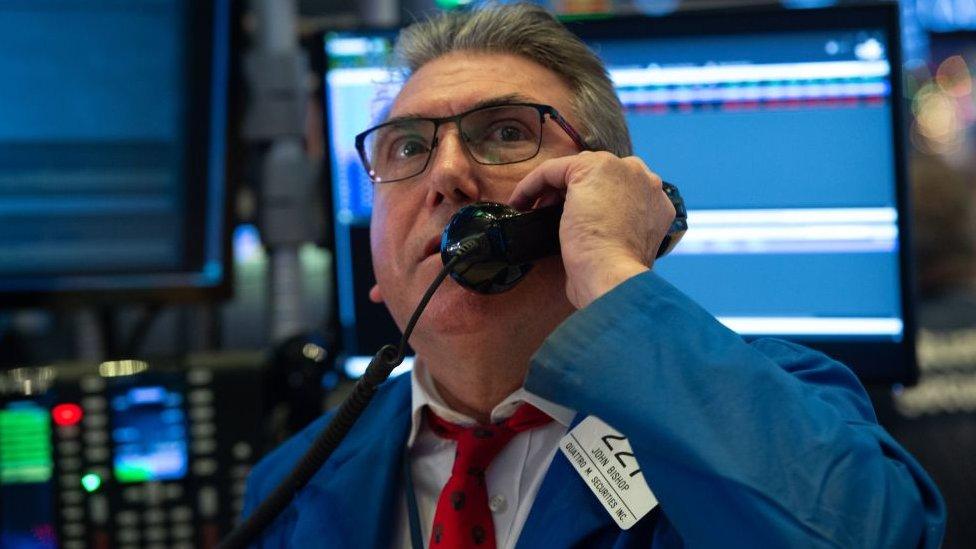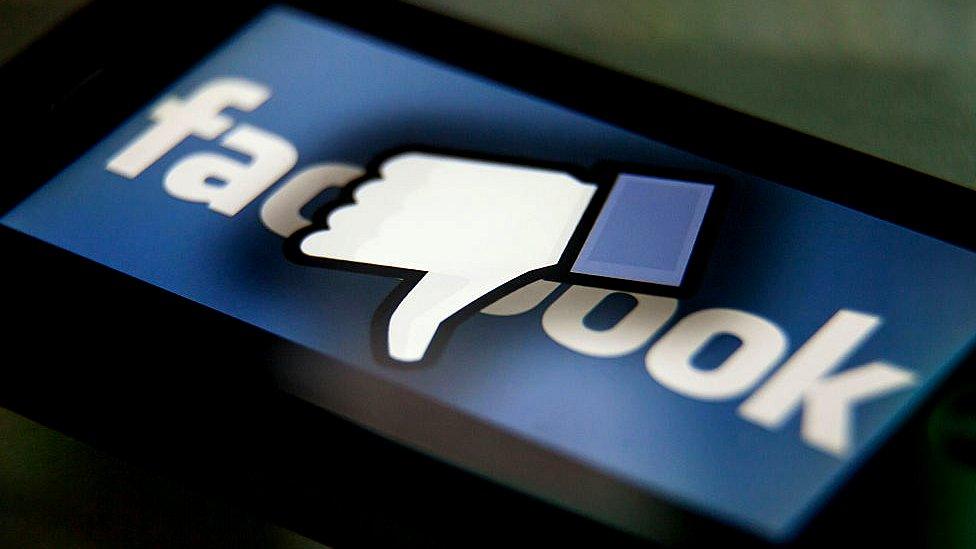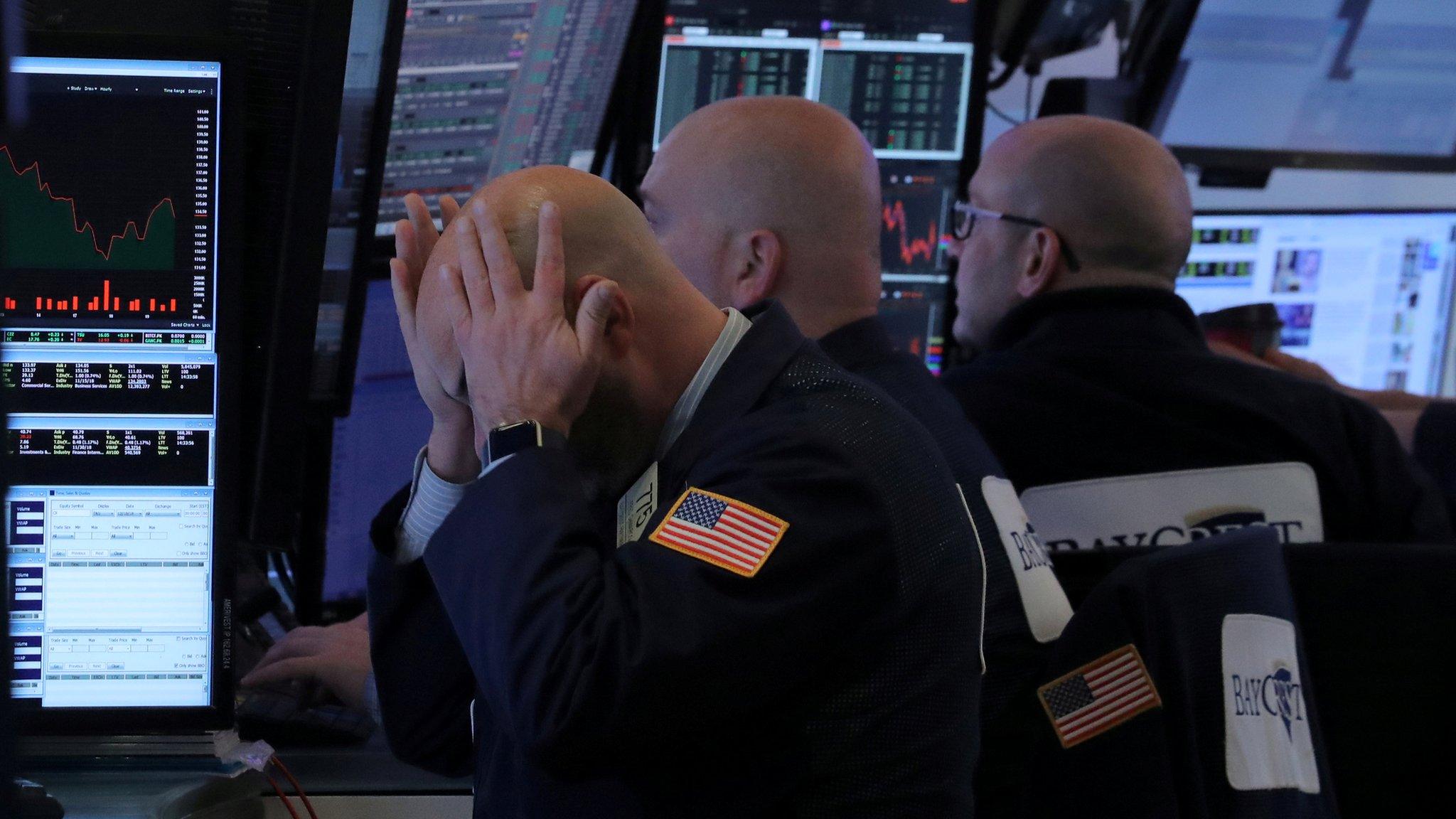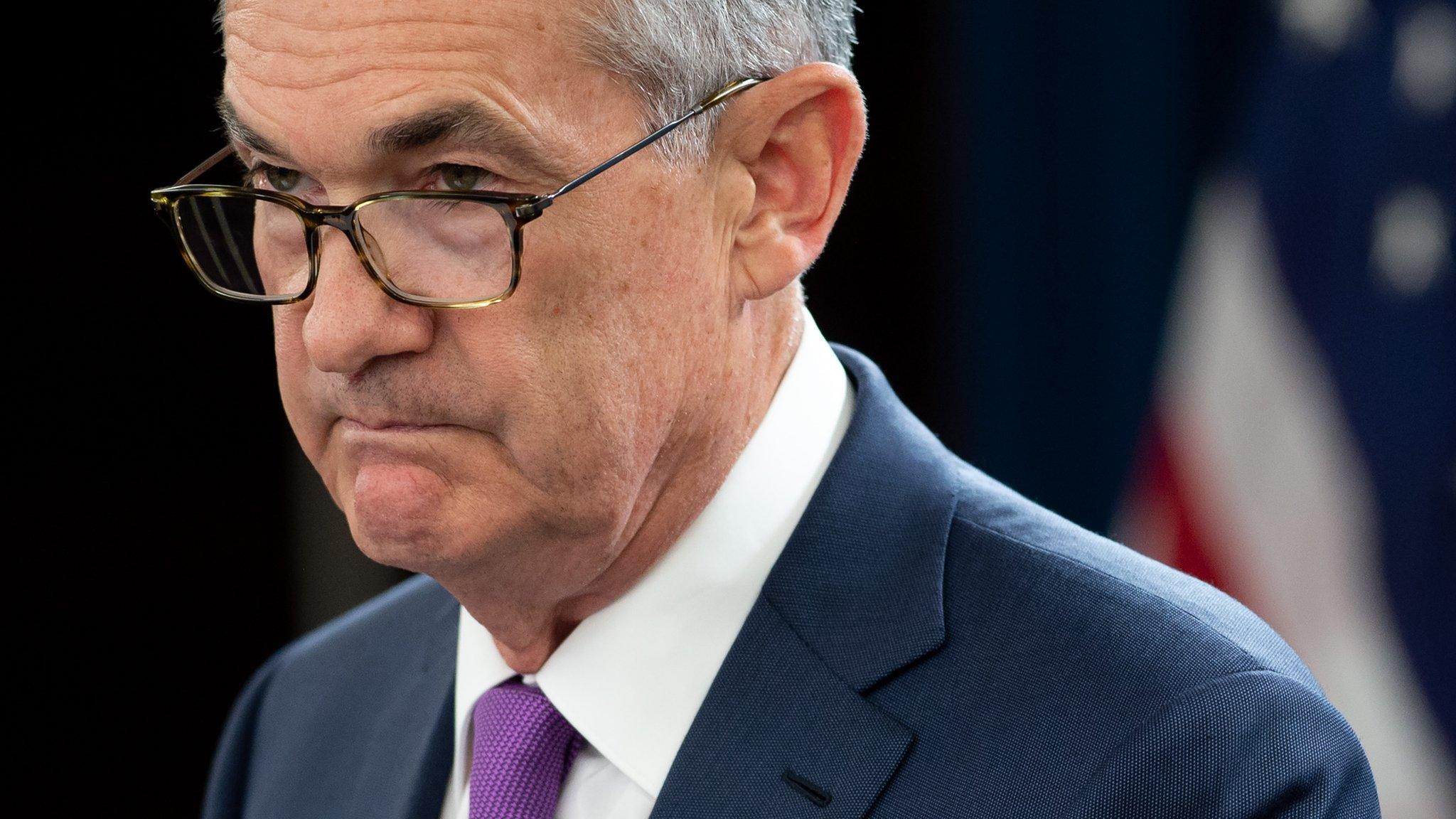US stocks suffer worst week in a decade
- Published

US stocks suffered one of the worst weekly falls in a decade as trade tensions with China, interest rate rises and a possible government shutdown rattled markets.
All three indexes closed lower, with the technology-focused Nasdaq down 20% since its peak, placing it in so-called "bear market" territory.
The Dow Jones Industrial Average recorded its biggest weekly drop in percentage terms since 2008.
The S&P 500 fell 7% for the week.
It is the biggest weekly percentage drop since August 2011 while the Nasdaq's 8.36% decline is the sharpest since November 2008.
The Dow Jones fell 6.8% during the week.
After years of gains, US investors are fleeing stocks, worried about a range of factors likely to hit corporate profits, including slowing economic growth domestically and abroad.
Earlier this week, the US Federal Reserve lifted the interest rate and signalled that it would continue to rise next year, albeit at a slower pace.
The Fed also cut its forecasts for economic growth in 2019 to 2.3%, down from the 2.5% predicted in September.
Michael Hewson, chief markets analyst at CMC Markets, said: "China is cooling and the eurozone is slowing down, and some of the economic indicators from the US have been a bit soft recently, but yet the Fed hiked rates and suggested that two more interest rate hikes were lined up for 2019."
Elliot Clarke, economist at Westpac, the banking group, added: "Political brinkmanship in Washington is further heightening market uncertainty."
Markets were also unnerved by comments from President Donald Trump's trade adviser Peter Navarro who told the Nikkei newspaper that it would be "difficult" for the US and China to reach a long lasting trade agreement that would end the tensions between the two.
Upswing
Share trading started Friday on an upswing, boosted by stronger-than-expected quarterly sales at sportswear giant Nike.
Investors also appeared soothed after John Williams, president and chief executive of the Federal Reserve Bank of New York said the central bank would consider market turmoil as it weighs future interest rate decisions.

Facebook's stock was one of the biggest fallers on Friday
However, selling set in by afternoon with some of the major technology firms - that led the market's rally earlier this year - experiencing some of the most bruising falls.
Facebook and Twitter both tumbled more than 6%, Amazon dropped more than 5%, and Apple and Microsoft slipped more than 3%.
For the day, the Nasdaq index fell almost 3%, the S&P 500 tumbled more than 2%, and the Dow slid 1.8%.
Some economists argue that the steep Wall Street sell-off does not reflect conditions in the wider economy, which grew at an annual pace of 3.4% in the most recent quarter.
Consumer sentiment also remains strong, according to the most recent data.
However, the fears on Wall Street could spread in the event of a prolonged downturn, analysts warned.
"If these expectations begin to shift, then we would expect to see more downward pressure on sentiment and spending patterns in early 2019," Oxford Economics said.
- Published20 December 2018

- Published20 December 2018
